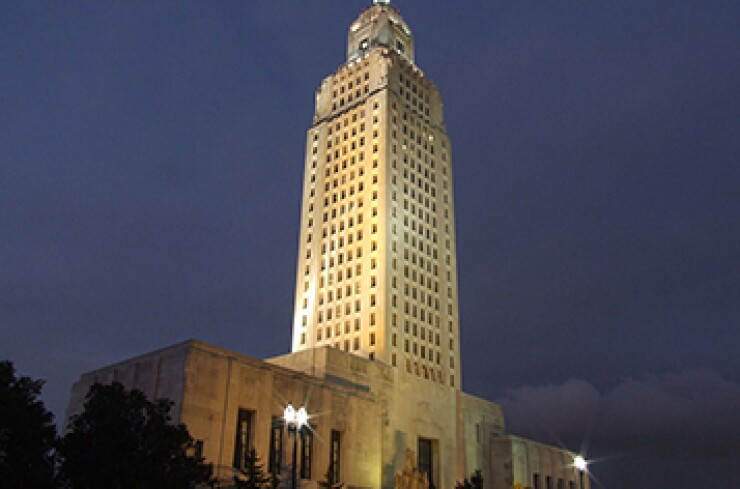
BRADENTON, Fla. – Louisiana lawmakers approved a $500 million deficit reduction proposal by Gov. Bobby Jindal, although some said the plan failed to adequately address the state budget's structural imbalance.
The Joint Legislative Committee on the Budget voted Friday to implement the plan.
Budget cuts and other measures are designed to address the current budget gap brought on by a $117.1 million deficit in fiscal 2015, corporations taking more tax credits than usual prior to state tax code changes on July 1, and slumping revenues primarily due to low oil prices.
Although there were complaints about the plan's reliance on certain methods to reduce the budget, such as new cash-flow procedures, implementing fraud prevention measures delaying certain payments, and allocating projected excess fund balances, lawmakers were under the gun to take action Friday.
Louisiana's constitution requires deficit reductions to be implemented within 30 days of a shortfall being identified, Administration Commissioner Stafford Palmieri said.
A revenue estimating conference announced the budget gap on Monday.
The administration's plan implements $150 million in cuts from 3% budget reductions at targeted agencies as well as using $31.7 million in funds from lawsuits and the Federal Emergency Management Agency, and $277.7 million in excess fund balances not appropriated in the fiscal 2016 budget.
Calling the plan "smoke and mirrors," Rep. John Schroder, R-Covington, said he believed that too few cuts were being made while too much depended on procedural actions, such as delaying payments or using estimated fund balances.
"This clearly isn't fixing anything," he said.
Another lawmaker said Jindal's proposal "kicks the can down the road," and suggested that a special session would be needed to develop the right plan for the state.
However, Palmieri said the administration's proposal spares cuts to priority services for vulnerable populations, avoids layoffs, and fully protects the higher education budget.
The plan also uses $28.1 million from the state's budget stabilization fund, which requires a vote of the Legislature.
Since lawmakers are not in session, ballots requesting their approval to use rainy day funds were sent out on Friday.
"There's a balance here using the rainy day fund and balancing the state's credit ratings," Palmieri said, adding that dipping into the emergency fund prevented the state from having to close a prison or reduce available food stamps.
Both Moody's Investors Service and Standard & Poor's have negative outlooks on Louisiana due to its structural budget imbalance.
"In our view, the state's continued focus on permanent structural solutions to its general fund budget challenges will be a key determinant of its future credit stability in the next year, as will its ongoing efforts to restore the budget stabilization fund, fund long-term pension and OPEB obligations, and adhere to strong debt management practices," S&P said in August while affirming the state's AA general obligation rating.
Moody's, which assigns Aa2 ratings to the state's GOs, noted similar concerns in an August report.
Analysts also pointed out that new budget pressures could develop if a lawsuit is successful invalidating a sales tax on natural gas and utilities, which was among the revenue-raising measures approved by the Legislature to balance the fiscal 2016 budget.
The Louisiana Chemical Association filed suit earlier this year asking a state district court to declare the tax unconstitutional because the group claims lawmakers used improper voting procedures to implement it.
The state stands to lose about $100 million if the utility tax is struck down.





